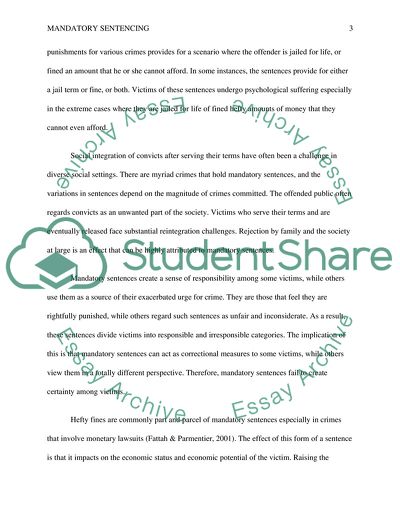Cite this document
(Effects of Mandatory Sentencing on Victims Research Paper, n.d.)
Effects of Mandatory Sentencing on Victims Research Paper. https://studentshare.org/social-science/1781545-effects-of-mandatory-sentencing-on-victims
Effects of Mandatory Sentencing on Victims Research Paper. https://studentshare.org/social-science/1781545-effects-of-mandatory-sentencing-on-victims
(Effects of Mandatory Sentencing on Victims Research Paper)
Effects of Mandatory Sentencing on Victims Research Paper. https://studentshare.org/social-science/1781545-effects-of-mandatory-sentencing-on-victims.
Effects of Mandatory Sentencing on Victims Research Paper. https://studentshare.org/social-science/1781545-effects-of-mandatory-sentencing-on-victims.
“Effects of Mandatory Sentencing on Victims Research Paper”. https://studentshare.org/social-science/1781545-effects-of-mandatory-sentencing-on-victims.


